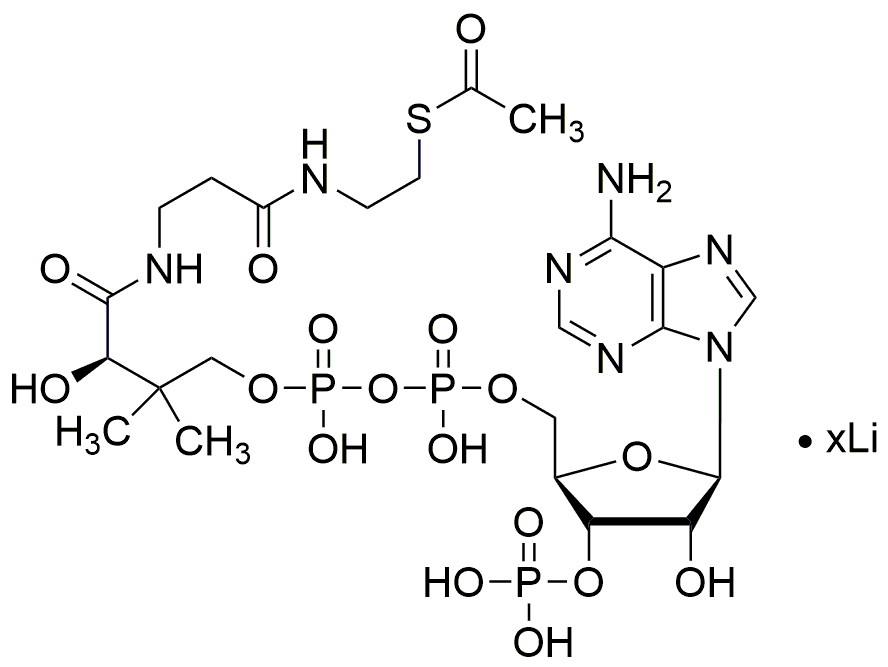Acetyl coenzyme A lithium salt is widely utilized in research focused on:
- Biochemical Research: This compound plays a crucial role in metabolic studies, particularly in understanding fatty acid metabolism and energy production in cells.
- Pharmaceutical Development: It serves as a key intermediate in the synthesis of various pharmaceuticals, aiding in the development of drugs that target metabolic disorders.
- Enzyme Activity Studies: Researchers use it to investigate enzyme kinetics and mechanisms, especially in studies related to acetylation processes.
- Cell Culture Applications: It is employed in cell culture media to enhance cell growth and productivity, particularly in the production of biopharmaceuticals.
- Metabolomics: This compound is essential in metabolomics studies, helping scientists analyze metabolic profiles and understand disease mechanisms.
General Information
Properties
Safety and Regulations
Applications
Acetyl coenzyme A lithium salt is widely utilized in research focused on:
- Biochemical Research: This compound plays a crucial role in metabolic studies, particularly in understanding fatty acid metabolism and energy production in cells.
- Pharmaceutical Development: It serves as a key intermediate in the synthesis of various pharmaceuticals, aiding in the development of drugs that target metabolic disorders.
- Enzyme Activity Studies: Researchers use it to investigate enzyme kinetics and mechanisms, especially in studies related to acetylation processes.
- Cell Culture Applications: It is employed in cell culture media to enhance cell growth and productivity, particularly in the production of biopharmaceuticals.
- Metabolomics: This compound is essential in metabolomics studies, helping scientists analyze metabolic profiles and understand disease mechanisms.
Documents
Safety Data Sheets (SDS)
The SDS provides comprehensive safety information on handling, storage, and disposal of the product.
Product Specification (PS)
The PS provides a comprehensive breakdown of the product’s properties, including chemical composition, physical state, purity, and storage requirements. It also details acceptable quality ranges and the product's intended applications.
Certificates of Analysis (COA)
Search for Certificates of Analysis (COA) by entering the products Lot Number. Lot and Batch Numbers can be found on a product’s label following the words ‘Lot’ or ‘Batch’.
*Catalog Number
*Lot Number
Certificates Of Origin (COO)
This COO confirms the country where the product was manufactured, and also details the materials and components used in it and whether it is derived from natural, synthetic, or other specific sources. This certificate may be required for customs, trade, and regulatory compliance.
*Catalog Number
*Lot Number
Safety Data Sheets (SDS)
The SDS provides comprehensive safety information on handling, storage, and disposal of the product.
DownloadProduct Specification (PS)
The PS provides a comprehensive breakdown of the product’s properties, including chemical composition, physical state, purity, and storage requirements. It also details acceptable quality ranges and the product's intended applications.
DownloadCertificates of Analysis (COA)
Search for Certificates of Analysis (COA) by entering the products Lot Number. Lot and Batch Numbers can be found on a product’s label following the words ‘Lot’ or ‘Batch’.
*Catalog Number
*Lot Number
Certificates Of Origin (COO)
This COO confirms the country where the product was manufactured, and also details the materials and components used in it and whether it is derived from natural, synthetic, or other specific sources. This certificate may be required for customs, trade, and regulatory compliance.


